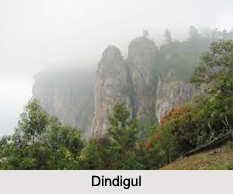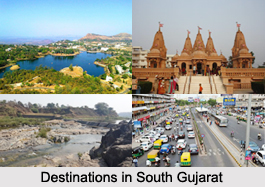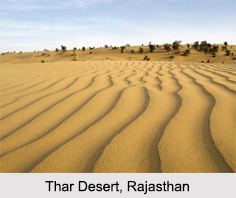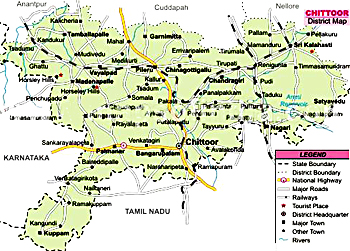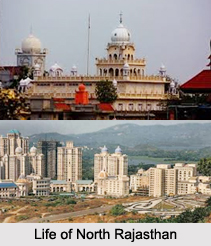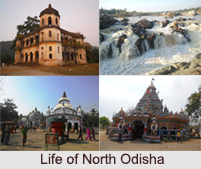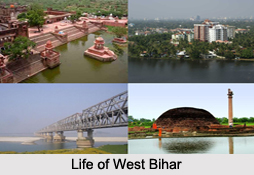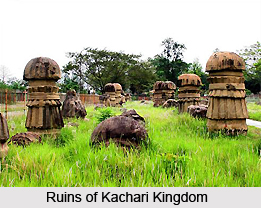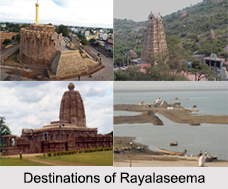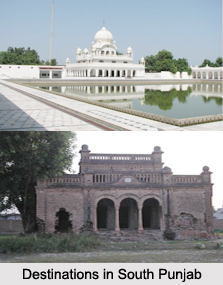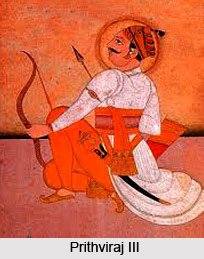 Prithviraj Chauhan belonged to the Chauhan dynasty. He ruled from two capitals Ajmer and Delhi. He regained control over the Rajput kingdom and conquered several neighboring kingdoms, making the kingdom the leading Hindu kingdom in Northern India. His empire included much of present-day northwest India including Rajasthan, Haryana, parts of Uttar Pradesh, and Punjab. The princely state of Nabha had close relations with Chauhan. Ballal Sena, the King of Delhi and Bengal, had two daughters, Roopsundari and Kamaladevi. Kamaladevi was married to Someshwar Chauhan, the King of Ajmer, and had a son, Prithviraj, and a daughter, Pratha.
Prithviraj Chauhan belonged to the Chauhan dynasty. He ruled from two capitals Ajmer and Delhi. He regained control over the Rajput kingdom and conquered several neighboring kingdoms, making the kingdom the leading Hindu kingdom in Northern India. His empire included much of present-day northwest India including Rajasthan, Haryana, parts of Uttar Pradesh, and Punjab. The princely state of Nabha had close relations with Chauhan. Ballal Sena, the King of Delhi and Bengal, had two daughters, Roopsundari and Kamaladevi. Kamaladevi was married to Someshwar Chauhan, the King of Ajmer, and had a son, Prithviraj, and a daughter, Pratha.
The battle against Bhimdev Solanki of Gujarat
Before this battle, Chauhan had killed many generals of Bhimdev, Solanki ruler of Gujarat. Vanraj Solanki, Bhimdev`s son was seen as a threat to Chauhan. A general who served Someshwar had betrayed Prithviraj and had joined Bhimdev. Prithviraj Chauhan`s army was poisoned on his information. Bhimdev`s had sent five hundred soldiers to crush Chauhan`s army to defeat. When this failed, he again sends thousand soldiers to attack in the middle of the night. On the final day, Bhimdev himself clashed with Chauhan and was defeated.
Battle Against Mahoba
Delhi soldiers of Chauhan` army were injured and stopped at Mahoba royal gardens for help. They were told that they had insulted the Mahoba king Parmar by stepping into his garden. They and attacked and killed the men. Chauhan came to know of this and declared war on Mahoba. During the battle the Mahoban army was split into three different sections. One was led by the Prince of Mahoba, while the other two were led by the brothers Alha and Udal. Chauhan defeated the sections under Udal and the Prince of Mahoba. Udal had injured a friend and general of Chauhan, Pundir in the fight. Udal was killed by Chauhan. Prithviraj and Sanjham Rai, who was also badly injured, fell down a nearby hill and were left to be eaten by crows. Sanjham Rai, to save his friend Prithviraj, allowed the crows to feed on him and not on Prithviraj. Alha, commander of the third section, had seen Chauhan fall. Alha was stopped from killing Chauhan by his guru, who explained that Alha only wanted to kill to revenge his brother Udal, and not for the welfare of the Mahoba State. Prithviraj became unconscious. He was shocked to hear of the death of his friend.
Other Conquests of Prithviraj Chauhan
Prithviraj Chauhan recovered from Mahoba battle and continued capturing and won successively. Chauhan`s had fought a battle against King Raichand. They attacked Chauhan when they knew he could not fight. The generals and close friends of Chauhan guarded him. Some villagers also came to help fight off King Raichand and ultimately killed in this battle. Chauhan took over the Kukada kingdom. He continued to take over kingdoms, extending his dominion in all four directions. The last battle of his victory march was against the king of Dariyagargh. He won the battle and returned to Delhi to celebrate his victory.
First Battle of Tarain, 1191
The greatest event of Prithviraj`s career is his struggle with Muhammad Ghori. The struggle of Prithviraj Chauhan with the Turkish power Muhammad of Ghori constituted a significant event in the history of ancient India. Since the annexation of Western Punjab by Muhammad of Ghori, the Chauhana territory of the eastern Punjab was threatened. Muhammad attempted to conquer Hindustan in 1190. Initially as strategic step, he devastated the fortress of Tabarhind, which was within the territory of Prithviraj Chauhan. At the same time the feudatories of Prithviraj also suffered the same reverses. This made the struggle between the Turks and Prithviraj Chauhan inevitable. Thus Prithviraj set out for the campaign against Muhammad Ghori.
In 1191, Shahabuddin Muhammad Ghori, invaded India through the Khyber Pass and reached Punjab. Shahabuddin Ghori captured a fortress, either at Sirhind or Bathinda, in present-day Punjab. Prithviraj`s strong army led by his vassal prince Govinda-Raja of Delhi rushed to the defence of the frontier, and the two armies met at the town of Tarain, near Thanesar. Shahabuddin Ghori`s army was divided into three parts. Shahabuddin Ghori on the horseback was leading the centre flank. Chauhan`s army had elephant cavalry whereas Shahabuddin Ghori`s army did not have. The armies clashed first, Shahabuddin Ghori`s horse cavalry was not able to hold its own against the elephants, which resulted in the defeat of left and right flanks of Shahabuddin Ghori. He led two regiments in an attack on the center, where he met Govinda Raja in personal fight. Gradually Ghori`s army was getting exhausted and withdrew back.
Defeat in the Second Battle of Tarain, 1192
In 1192, Shahabuddin Ghori reassembled a huge army and returned to challenge Prithviraj at the Second Battle of Tarain. Chauhan appealed to his fellow Rajput rulers and the aristocracy to help him in fighting against Shahabuddin Ghori. He wanted to strengthen his confederacy with the Hindu kings. But the Gahadavala king of Kannauj, Jayachandra stayed aloof from the anti-Turkish confederacy organized by Prithviraj. He assembled a very large army with the aid of aristocrats and Rajput rulers. The army was larger than that of Shahabuddin Ghori. The armies met in Tarain, where Shahabuddin Ghori put two options to him. He should be either converted to Islam or be defeated. Prithviraj did not comply with this and Ghori decided to attack. Shahabuddin Ghori divided his troops into five parts and attacked in the early morning hours. Initially they retreated as the Chauhan elephant group had advanced. General Khande Rao of the Chauhan forces was killed. In the evening, Shahabuddin Ghori himself led a heavy force to the center of the Rajput line, which created confusion. Prithviraj was captured. The Rajput army fled, thus surrendering victory to Shahabuddin Ghori executed Prithviraj Chauhan in 1192. Shahabuddin Ghori`s victory ushered Muslim rule further east.
Regarding the hereditary rivalry of Jayachandra with the Chauhana House, the critics and the historians have approached several theories. Perhaps Prithviraj`s forcible marriage with Jayachandra`s daughter Sanyukta injured the vanity of the Gahadavala king Jayachandra. Hence Jayachandra decoded to remain aloof from the anti-Turkish confederacy organized by Prithviraj Chauhan. But the recent researches proved that the story of Prithviraj`s forcible marriage with Sanyukta is spurious. There was no authentic proof about this forcible marriage. Moreover there is no authentic testimony of the fact that Jayachandra was an oppressor and invited Muhammad Ghori to invade Delhi.
Prithviraj Chauhan was a great soldier but he actually lacked the political insight of a diplomatic administrator. Although he could not conquer many territories like the other Indian rulers, yet he proved himself as an able soldier in the first battle of Tarain. He could not understand the true nature of the Muslim invasion until the blow came upon him. Moreover he chose to act on the defensive towards his enemy. He did not pursue the Turks after his victory in the first Battle of Tarain. He neglected to fortify his Empire after his initial victory against the Turks and he failed to execute his strategy properly. However the sudden invasion by Muhammad Ghori in the 1192 AD, determined his decline as well as the Hindu Supremacy in India.







